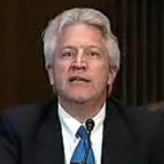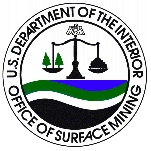Officials
Offical

One of President Obama’s most controversial nominations has been that of Joseph Pizarchik to be the Director of the Office of Surface Mining Reclamation and Enforcement (OSM), a bureau within the US Department of the Interior (DOI) charged with the competing tasks of promoting coal production in the US while also trying to protect and restore the land that has been ravaged by surface, or strip, mining. For the most part, OSM has been successful in implementing the first task and failed miserably at the second. The agency has long been viewed as a favored ally of the coal industry, much to the frustration of environmentalists and local activists in states like Kentucky and West Virginia. These activists, including the mainstream Sierra Club, sharply criticized the Pizarchik nomination, both because they wanted someone who had been an active critic of such practices as mountaintop removal mining and coal ash storage, and because they contend that Pizarchik has either evaded opining on mountaintop removal or denied the science regarding coal ash storage. Among Pennsylvania environmentalists, he is known as “Coal Ash Joe.” Pizarchik’s nomination was approved by the Senate November 6, 2009.
Groups against federal mining nominee (by Don Hopey, Pittsburgh Post-Gazette)
- Latest News
- D.C. Public Schools will Teach all Second-Graders to Ride a Bike
- New Rule in Germany Limits Sales of Sex-Themed E-Books to 10pm to 6am
- What Happened to the 6-Year-Old Tibetan Boy the Chinese Government Kidnapped 20 Years Ago?
- U.S. Ambassador to Turkey Photoshops his Hair Color to Mock Turkish Mayor
- Mystery Artist Calls Attention to Unfixed Potholes by Drawing Penises around Them





